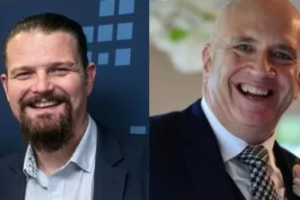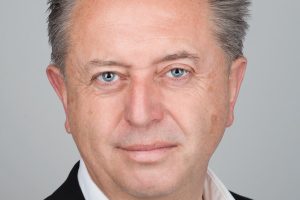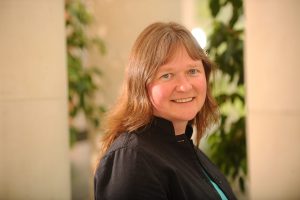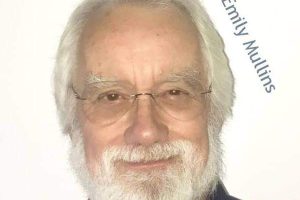Ben Wood
As a graduate trainee at Vodafone in 1985, Ben Wood little realised the significance of the industry he was joining. “Who would have thought the mobile phone would become the most prolific electronics device on the planet?” he says.
In 2020, Ben set up the Mobile Phone Museum, which has hundreds of handsets ranging from the earliest devices to collectors’ gems such as the Huawei KFC phone, emblazoned in red and engraved with an image of Colonel Sanders.
Although currently virtual, the aim is for the museum to have a physical pop-up exhibition by 2025, in time for the 40-year anniversary of the first mobile phone call made in the UK.
Ben is also chief analyst and chief marketing officer at CCS Insight, a consultancy focused on connected technology, which he has helped grow from three people in the UK to a global team of 30.
Ben was not hugely academic at school, but flourished at university, especially during a year’s work placement at Texas Instruments in the south of France. “I had a luggable laptop, desktop computer and an email address, which was quite exciting at the time,” he says, “a trigger for making tech part of my life.”
Working for an American multinational proved a “wonderful immersion” in the way IT was evolving. It also taught him how to build empathy with people and maximise business relationship. He worked his way up through the industry until, in 2001, he became the youngest ever research VP at Gartner.
Still a consultant, Ben has never lost his love of gadgetry, and changes his phone every three to five weeks. This keeps him up-to-date with the latest in foldable phones, wrap-around screens, 5G, and connectivity with smart-watches, smart-glasses and headphones. He even wears a ring that functions as a credit card.
Such devices will play an increasing role in healthcare over the next few years, he says, perhaps measuring blood sugar and body temperature as well as heart-rate and sleep patterns.
In 2020, Ben set up the Mobile Phone Museum, which has hundreds of handsets ranging from the earliest devices to collectors’ gems such as the Huawei KFC phone, emblazoned in red and engraved with an image of Colonel Sanders.
Although currently virtual, the aim is for the museum to have a physical pop-up exhibition by 2025, in time for the 40-year anniversary of the first mobile phone call made in the UK.
Ben is also chief analyst and chief marketing officer at CCS Insight, a consultancy focused on connected technology, which he has helped grow from three people in the UK to a global team of 30.









